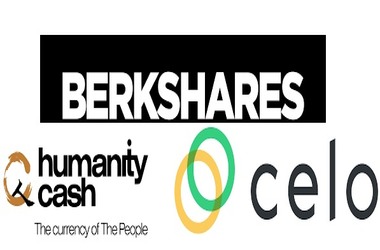
BerkShares is a well-known community currency in the United States that focuses on keeping money local by supporting small businesses. BerkShares have circulated as paper notes in the Berkshires area of Massachusetts since 2006, with 400 firms participating. BerkShares have been issued in excess of $10 million since its start. BerkShares has taken on a new life as a digital currency that alleviates the frustrations of high card processing costs while also making participation simpler for community members.
Humanity Cash, a social business firm situated in New York, using Celo’s carbon-negative blockchain technology to create community currencies that allow local economies to retain their money in their communities. Humanity Cash and the Schumacher Center for a New Economics joined together to create digital BerkShares, dubbed “artisan crypto” by one Berkshires resident, in response to the demand for a non-extractive, locally managed digital payment system.
On an iPhone or Android smartphone, the app is now available for free download. BerkShares may be purchased with any US bank account and spent at local Berkshire companies. The app directory has a list of participating businesses.
BerkShares are backed 1:1 by government money and are backed by two community banks, making them stable and resistant to speculation. When monies are deposited in exchange for local currency, BerkShares tokens are created on the Celo network. Small firms pay no transaction costs since subsequent transactions settle peer-to-peer across the Celo network. Celo’s blockchain architecture guarantees that each transaction has a net beneficial impact on not just the local economy but also the environment.
Rene Reinsberg, President of the Celo Foundation, said “Celo is a blockchain-based infrastructure that enables local economies to flourish while also regenerating global ecosystems. It’s difficult to think of a greater illustration of the power of local innovators and entrepreneurs supporting one another and strengthening community ties than Humanity Cash. That is what we are enthusiastic about in the Celo ecosystem, and we envisage community currencies becoming the primary method of payment in many communities throughout the globe.”
Fennie Wang, Founder and CEO of Humanity Cash, said “Humanity Cash aims to connect blockchain technology with local economies based on community, trust, and reciprocity. We think that technology should be used to foster stronger human relationships, and that programmable money may help communities become more resilient and financially included.”
Susan Witt, Executive Director of the Schumacher Center for a New Economics, said “The board of directors of the Schumacher Center and BerkShares are excited to cooperate with Humanity Cash to convert paper cash to digital currency. Humanity Cash’s system uses the Celo blockchain while maintaining connectivity with our community banks, preserving the aesthetics of paper cash, and adhering to our basic principles of community, ecology, economics, sustainability, and equality.”